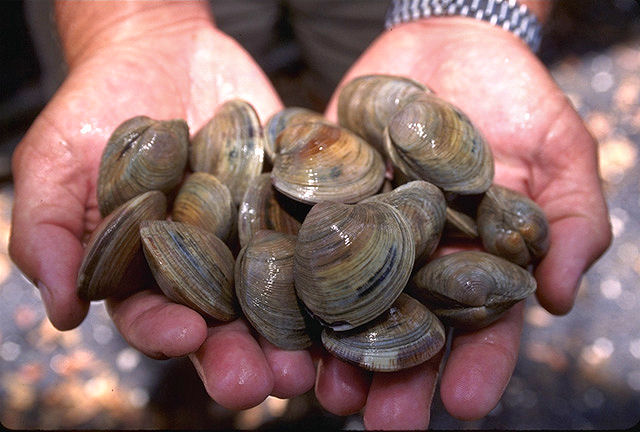The discovery of a contagious cancer spreading among edible clams off the northeast US and Canadian coasts has stunned scientists and raised new questions about marine health, according to research published Thursday.
The study in the journal Cell describes for the first time the unusual kind of leukemia that has been killing untold numbers of clams for years.
“We were pretty amazed,” said lead author Stephen Goff, who studies mouse leukemia at the Columbia University Medical Center in New York, and was asked by a marine biologist in 2009 to look into whether a virus might be responsible for sickening clams.
The kind of clams affected by the leukemia are known as soft-shell clams (Mya arenaria). Goff said there is no danger of humans catching cancer by eating a diseased clam.
When Goff and colleagues studied clams taken from Maine, New York and Prince Edward Island in Canada, they found that unlike most cancers, which start when a cell in the body mutates, the leukemia cells did not match the individual clams that were stricken.
However, each case of leukemia was nearly identical, suggesting that it was a cancerous cell line that was transmitting from one clam to another.
“The clue was when we looked at the genotypes of the tumors in the clams, lo and behold the tumors didn’t match the host animal they were growing in,” Goff told AFP.
“That is pretty weird. When we looked at tumor samples from a cross the East Coast they were all almost identical to each other,” he added.
“Astoundingly, the conclusion is that this is spreading as a tumor line from animal to animal and that is how each animal gets sick.”

